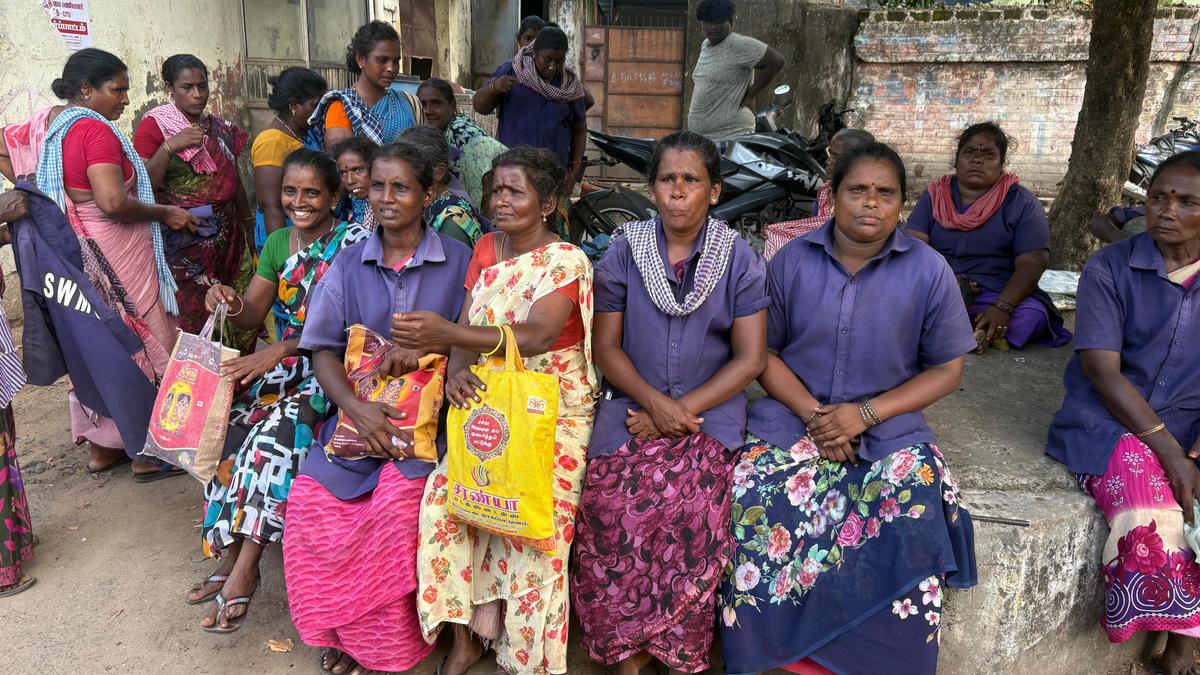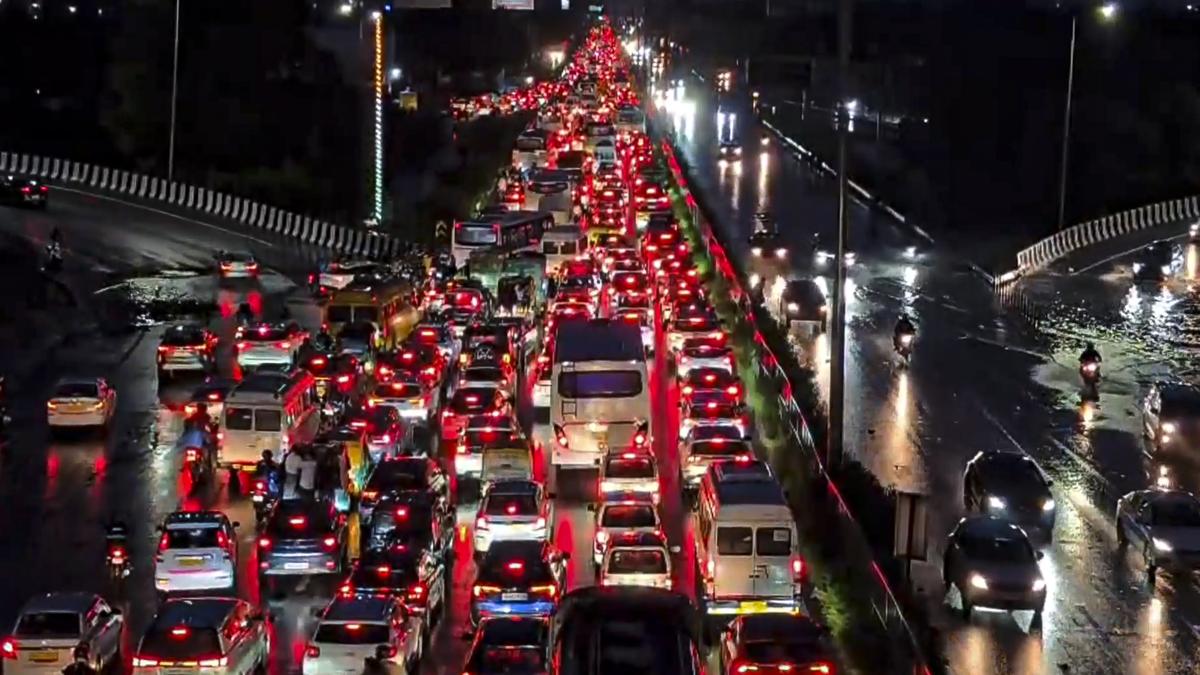
Sanitary workers gather after work in Nagore area of Nagapattinam
| Photo Credit: Special Arrangement
In the streets of Nagapattinam town, a largely invisible workforce performs a vital public service: collecting and segregating the town’s waste. Yet, for many sanitary workers employed through private contractors under municipal supervision, this essential labour comes with long hours, meagre wages without proper salary slips, and a persistent neglect of their legal and social rights.
Around 188 sanitary workers, many hailing from Ambedkar Nagar in Nagore, Vanjur, Thethipuram, and Amirtha Nagar, describe a grueling workweek that spans seven days with only two days of leave per month with salary cuts. “Only on Sundays, we are allowed to leave three hours earlier, which is considered as our off,” said a worker on condition of anonymity. “Apart from that, if we take a day off, our wages are cut,” he rues.
The workers’ routine begins at 6 a.m. and continues until 2 p.m., collecting waste from designated points and households. They sort the refuse into degradable and non-degradable waste, often without adequate protective gear. Rubber gloves, essential for handling hazardous materials, are issued only once every fifteen days, and their durability is compromised by exposure to sunlight. Many workers resort to cloth gloves made by themselves, which are easier to maintain but offer far less protection.
“I have two children and no husband,” said one worker, visibly weary. “I earn ₹10,500 a month, but studies, food, and debts leave me struggling.” Another worker, supporting a family of seven, said: “My husband has been ill for a long time. I run the family on borrowed money. We don’t even have salary slips, so we cannot get loans from THADCO or banks.”
Occupational health hazards add to the workers’ woes. Reports of headaches, skin rashes, eye irritation, and other ailments are common, yet comprehensive medical checks are lacking. Though the municipality provides ESI and PF deductions from daily wages, workers claim they have no clarity on the amounts contributed, nor do they possess ESI cards or salary slips. The daily wage of ₹470 is reportedly divided such that ₹120 is deducted for PF and ESI, yet none of the workers can confirm if the contributions reach their accounts.
K. Venkadesan, Town Secretary of the CPI(M) trade union for sanitary workers, highlighted the irregularities. “Workers are denied transparency in salary details. Minimum wage violations are rampant. Comprehensive medical checkups must be ensured, and wage dues properly accounted,” he said.
District Collector P. Akash had revised the daily wage for sanitary workers to ₹600 in July 2025, up from ₹540, under G.O. 62 of the Minimum Wages Act. Yet, workers report receiving only ₹350 per day, totaling ₹10,500 monthly, far below the sanctioned rate. A letter from Nagapattinam Municipality citing shortfall in compensation owed to workers if wage revisions were applied retroactively by Chairman T. Leena Simon in January 2025 was sent to the Municipal administration department in Chennai. However due response is yet to be received by the Municipality.
Despite circulars from the Municipal Administration Department (October 2023) urging all the Corporations and Municipalities to mandate the provision of ESI, PF, and salary slips, compliance remains inconsistent, workers live in chronic uncertainty, deprived of legal documentation, exposed to health risks, and constrained by manpower shortages in a sector critical to public health, activists say.
“Repeated petitions and protests have brought some attention to these grievances. We are aware of the situation and are working to address it, but structural and contractual complexities make progress painstakingly slow,” said a senior official from the Nagapttinam Municipality.
Published – August 13, 2025 07:38 pm IST


